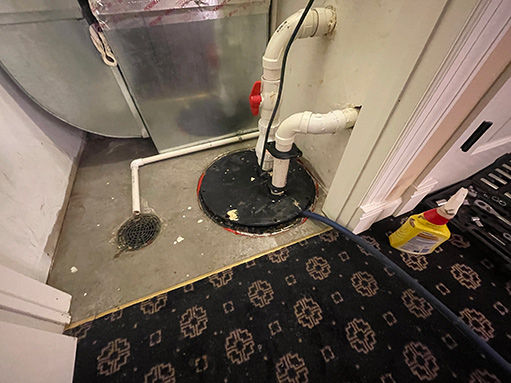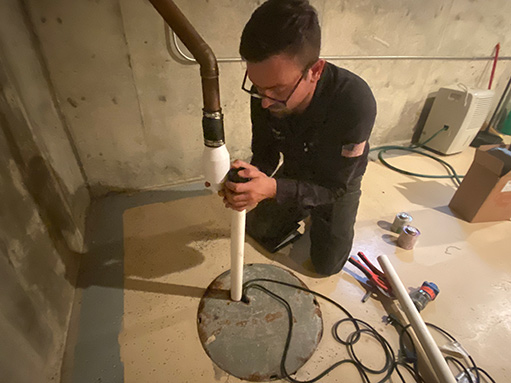
Has your ejector pump been failing or problematic lately, and does it seem that the equipment is no longer working as efficiently as it used to? Perhaps you have fixed the same issues repeatedly, yet the pump is still not back to its optimal performance?
If this sounds like you, maybe it is time to step back and take a long, hard look at your ejector pump, advises MHN Property Management team. The issues with the pump may be more than superficial. If your ejector pump has become chronically problematic, there is a huge chance that the pump is about to fail.
Yes, this can happen even if the ejector pump has not reached the limit of its projected lifespan, as determined by the equipment manufacturer. There are several reasons why an ejector pump fails prematurely, but the number one cause is clogging.
Most clogging inside an ejector pump does not come from outside the system but from the home itself. Your ejector pump will be prone to clogging if any of the following materials or items find their way into your toilet, drains or the pump:
- Cotton swabs are a leading cause of ejector pump issues
- Chemical drain cleaners cause corrosion inside the ejector pump
- Chemicals and synthetic fibers from clothes dryer sheets can damage and clog an ejector pump
- Disposable wipes, dental floss and cigarette butts will also clog the ejector pump
How can you tell if your ejector pump is about to fail, and what should you do about the problems?
6 signs that your ejector pump is failing
Frequent clogs
Frequent drain clogs in your home signify that your ejector pump is not evacuating waste efficiently. If clogs are present in many of the drains at the same time, you can be sure that the root cause is not in the drains but in your ejector pump system. If the ejector pump is pumping waste efficiently, wastewater will not collect inside your drainpipes to cause a slow or clogged drain inside the home.
Strange noises
It is normal for the pump to make some noise when it is working; the quiet humming of the motor. But if there are unusual noises from the pump, such as rattling, clanging and grinding, that is a sign of trouble. Strange noises from your ejector pump mean there is a problem with the internal components of the pump, perhaps the impeller or motor is damaged.
Slow drains in the home
A single slow drain in your home is not a sign of problems in your ejector pump. If one drain is slow but other drains are working perfectly, check for the cause in the connecting pipes of the affected drain. Multiple slow drains in the home at the same time mean that the ejector pump is not pumping wastewater out of the drainage system efficiently.
Foul odors
Foul odors will become a recurring problem if your ejector pump is malfunctioning. This problem happens as a result of a buildup of stagnant water and sewage inside the pit. In the early stages, the bad smells will only be present when you use your drains. But the odors from this festering problem will eventually find their way into your home or constantly linger around your premises.
A lot of water inside the pit
Due to the ejector pump becoming less efficient, as a result of problems in the system, water may start to collect inside the pit. Previously, even if you found wastewater inside the basin, the level was usually low. However, the amount of water inside the pit will slowly increase as your ejector pump loses its ability to quickly remove wastewater.
The pump cycles frequently
If the operational cycles of the ejector pump –intervals between start and stop – become shorter, the pump could start to fail. An ejector pump will cycle frequently if it is struggling to remove water from the pit. This problem could also be due to a malfunction of the float switch.

What to do if your ejector pump is failing
What should you do if these signs of ejector pump failure are present in your home? You need to troubleshoot the system to discover the cause of the issues. Common places problems happen in an ejector pump system are in the impeller, float switch and drainage pipes.
To properly check the system and ensure that you find the immediate and remote causes of the problem, you may want to hire a professional plumber to inspect the system. Depending on the inspection results, you can fix the pump, or you may have to buy a new one.
Whatever the verdict is, it is a good idea to act immediately to prevent a plumbing emergency in your home. The cost of fixing or replacing your sewage ejector pump is insignificant when you compare it to the cost of a major plumbing disaster in your home.

